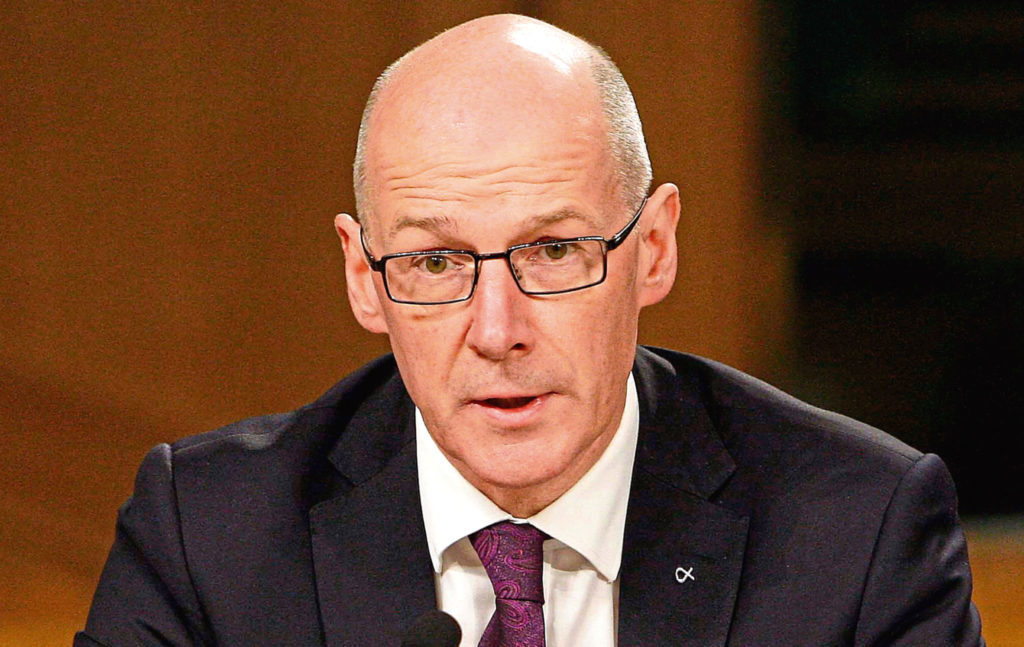
Politicians have backed victims of abuse in care calling for changes in a compensation scheme that would bar them from suing the institutions which failed them.
A bill providing financial compensation for abuse survivors has been backed by MSPs but opposition politicians called for the removal of a waiver that would stop abuse survivors seeking legal action against their abusers.
The Redress for Survivors (Historical Child Abuse in Care) (Scotland) Bill proposes a compensation scheme for survivors of abuse in the care system in Scotland.
David Whelan, 62, who represents hundreds of children who suffered abuse at Quarriers Children’s Village at Bridge of Weir, said: “Asking us to give up one of the only things we have, our rights, is unacceptable. The introduction of a waiver was a nasty surprise for all of us. We had no idea the government had been speaking to the care organisations about this.
“The organisations who took taxpayers’ money to look after us and then failed to prevent those who abused us, must be held accountable too and it’s up to the government who paid them to do that.”
Labour education spokesman Iain Gray said that if the Scottish Government did not amend the provision, his party would. “The waiver compromises the integrity of the Bill,” he said. “It must go.”
Mr Swinney told MSPs that he believes the waiver would mean insurers would support organisations to make contributions to the Bill, if they are assured there is no chance of future litigation.
The Scottish Child Abuse Inquiry, led by Lady Smith, last month heard how ministers had disagreed on whether to hold the inquiry.
Despite evidence of abuse within care homes being presented to civil servants and ministers in 2002, an inquiry was not announced for another 12 years.
What happened was a national disgrace. All of us must face up to that and do the right thing
By John Swinney, Deputy First Minister
There have been a lot of concerns raised about survivors being asked to sign a waiver and criticism of having to make a choice between applying for financial redress or raising a civil action through the courts.
Redress is an alternative remedy for survivors. Nothing in the Bill prevents those who wish to go to court from doing so. The Bill does, however, recognise that this is not always an option that survivors want to, or indeed can, take.
The driver for the waiver is that many survivors want contributions from care providers where they were looked after to be included in their redress payment. Our belief is that without waiver, fair contributions to all survivors will not follow. Without fair contributions, the redress scheme will not be a collective endeavour and will not be meaningful to all survivors.
I have listened to the concerns raised and will engage constructively with parliament about how we can address those concerns. I will also consider the payment levels to ensure redress provides fair payment.
We do not know of any redress scheme where providers make contributions but receive no waiver. Neither can we find any schemes that secure contributions by using an offsetting model. There is a risk that offsetting does not encourage providers to contribute to the scheme in the same way as waiver.
An important part of our collective response to the harms of the past is to recognise those survivors who did not live long enough to access redress.
I have given a commitment to amend the Bill to change the eligibility criteria for next-of-kin payments to extend it to the next of kin of survivors who died on or after December 1 2004.
I know first-hand from survivors how important it is that those who bear responsibility are held to account. I have heard from them what it feels like to be a child away from home, abused by those supposed to be looking after them, isolated and scared when they should have been cherished. For those abused in the past it is vital that we recognise that what was done to them was a national disgrace. All responsible, government and those providing care, must face up to that and do the right thing.

Enjoy the convenience of having The Sunday Post delivered as a digital ePaper straight to your smartphone, tablet or computer.
Subscribe for only £5.49 a month and enjoy all the benefits of the printed paper as a digital replica.
Subscribe © Andrew Cowan / Scottish Parliament
© Andrew Cowan / Scottish Parliament